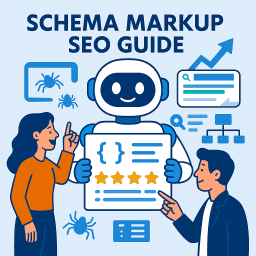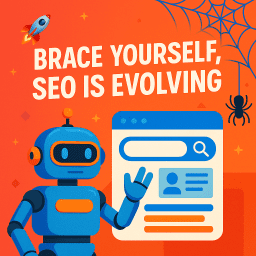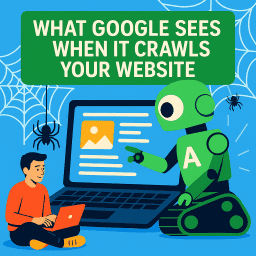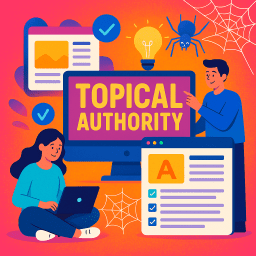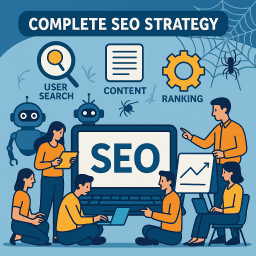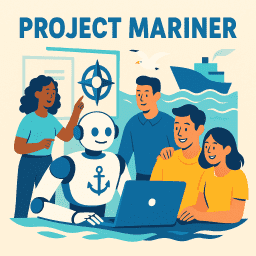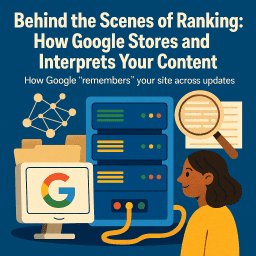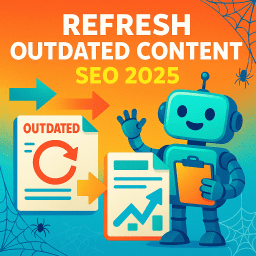May 2025 Google Traffic Drops: Algorithm Volatility Explained
Why your site traffic suddenly collapsed this month

🚀 May 2025 SEO Chaos: What to Know, What to Do
If your website has seen a sudden, unexpected drop in traffic over the past couple of weeks, you’re not alone. Across industries, webmasters, bloggers, and SEO professionals are reporting dramatic ranking fluctuations and traffic losses—some as steep as 40% to 60%. While there hasn’t been a formally named core update from Google in May 2025, all signs point to unconfirmed algorithmic volatility and systemic shifts in how Google is displaying content to users. This article dives deep into the current SEO climate, analyses what’s really going on, and offers actionable steps you can take to diagnose and adapt to these changes.
🚨 What’s Happening: A Surge in Ranking Volatility
Starting around 12 May 2025, multiple SEO tracking tools such as Semrush Sensor and MozCast reported unusually high volatility scores. Communities like WebmasterWorld and Reddit echoed the same concerns—sharp drops in traffic across a wide variety of sites and sectors.
Industries hit hardest include:
- 💊 Health & Wellness
- 🗞️ News & Media
- 💰 Finance & Investing
- 💻 Technology Blogs
- 🛒 E-commerce Retail
Even well-established and authoritative websites have been affected, suggesting a shift in Google’s ranking signals or a heavier emphasis on AI-driven search features.
📉 Residual Effects of the March 2025 Core Update
While there’s no confirmed core update in May, the lingering effects of the March 2025 Core Update are still in play. That update focused on:
- 📚 Highlighting E-E-A-T: Experience, Expertise, Authoritativeness, and Trustworthiness
- 🧹 Reducing visibility for low-value or AI-generated content
- 🎯 Rewarding clear, in-depth answers to user intent
If your site was hit in March and hasn’t recovered, the May turbulence might be a continuation of that trend.
🤖 AI-Enhanced Search and the Rise of Zero-Click Results
Google’s rollout of AI-generated answers—via features like “AI Overviews” or “Search Generative Experience (SGE)”—means users often get what they need right on the search results page.
This has led to more “zero-click searches”, where users don’t click through to any website, even if your page ranks highly.
Impacts include:
- 📌 Featured snippets and AI answers capturing most of the clicks
- 🔽 Less visibility for traditional organic listings
- ⚠️ Traffic drops for informational content, even when rankings remain stable
🔍 Diagnosing the Damage: What to Check First
Before you make any changes, it’s essential to understand exactly what’s happening with your traffic. Use these reliable tools to pinpoint where the losses are occurring and why:
1. Google Search Console 📈
- 📊 Compare performance data before and after 12 May
- 🔎 Identify which search queries have lost impressions or clicks
- 📄 Filter by page to find the biggest drops in traffic
2. Google Analytics (GA4) 📊
- 📉 Review organic traffic changes across your top-performing pages
- 🧭 Examine user engagement metrics like bounce rate and time on page
- 🗓️ Compare year-over-year trends to rule out seasonal dips
3. SEO Tracking Tools 🧰
- 🕵️ Use rank tracking tools such as Ahrefs, SEMrush, or SERPWatcher
- 📉 Spot drops in keyword rankings and visibility scores
- ⚖️ Compare your performance against competitors in your niche
🛠️ How to Adapt: Recovery and Mitigation Strategies
1. Double Down on People-First Content
- 📝 Refresh thin or outdated content with new, insightful information
- 🧑🔬 Include expert input or first-hand experience to add value
- 🤖 Avoid relying purely on AI-generated articles
2. Strengthen E-E-A-T Signals
- 👤 Display author bios with qualifications and credentials
- 🔗 Add trustworthy citations and reliable source links
- 💬 Encourage social shares, reviews, and user interaction
3. Improve Technical SEO and User Experience
- ⚡ Optimise your site speed using Core Web Vitals benchmarks
- 📱 Ensure mobile-friendliness and intuitive design
- 🔧 Use structured data to enhance your SERP presence
4. Target Long-Tail and Contextual Queries
- 🔍 Use more specific, intent-driven keyword phrases
- ❓ Add FAQ sections to capture featured snippet space
- 🧵 Cover related subtopics to become a topical authority
5. Diversify Your Traffic Sources
- 📧 Build an email list and send regular updates
- 📣 Share your content on LinkedIn, YouTube, and Reddit
- 🤝 Collaborate with others in your niche for exposure
🔮 Looking Ahead: The Future of SEO in an AI-Driven Landscape
- 📖 Create original, well-cited content
- 🧠 Share unique expertise and first-hand knowledge
- 🛡️ Focus on trust, relevance, and user-first experiences
Google is likely to continue testing new features without warning. Being agile, informed, and focused on quality will help you weather the storms.
✅ Final Thoughts
The traffic dip many sites are seeing in May 2025 may not be from a named update—but the impact is just as real.
Keep delivering real value, improve your content quality, and build user trust. These fundamentals will continue to be your best defence against future algorithm shifts.
Need help auditing your site or adjusting your strategy? Contact The SEO Guide Book team today for a free consultation.
📝 Recap and Clarify: Post-Specific FAQs
What happened with Google’s algorithm in May 2025?
Google rolled out several unconfirmed but highly impactful updates in May 2025, causing massive volatility in rankings and traffic for many websites across industries.
Why did so many sites lose traffic in May?
Many sites saw traffic drops due to deindexing, changes to how Google interprets intent, or shifts in how algorithmic signals like helpful content or E-E-A-T are weighted.
Was this a confirmed Google core update?
No confirmed update was announced, but the scale and consistency of changes strongly suggest algorithmic adjustments occurred—especially affecting affiliate, travel, and content-heavy sites.
What types of websites were hit the hardest?
Affiliate sites, low-E-E-A-T blogs, and websites dependent on programmatic SEO or mass content automation appeared to suffer the most during the May volatility.
Is Google becoming less transparent about updates?
Yes. In 2025, Google has moved towards fewer official announcements, leading to more unconfirmed updates and increased uncertainty for site owners and SEOs.
Can I recover lost traffic after an update?
Yes, but recovery may take time. Focus on updating content, improving E-E-A-T signals, removing low-value pages, and aligning with Google’s guidance for helpful content.
Should I stop publishing content during volatility?
No. Continue publishing quality content, but avoid panic-publishing. Prioritise useful, intent-matching content over chasing trends or flooding your site with filler.
How can I check if my site was affected?
Use Google Search Console to check impressions, clicks, and rankings before and after May. Look for major shifts across key pages and queries.
What role does AI-generated content play in volatility?
Google appears to be cracking down on low-quality AI content. Sites using AI without human editing, structure, or value-add may have been penalised indirectly.
What’s the best way to future-proof my SEO?
Focus on quality over quantity. Build topical authority, show real expertise, update content regularly, and prioritise user experience over search engine tricks.
Traffic drops feel brutal—but they’re not the end. They’re the beginning of a smarter strategy. – David Roche


